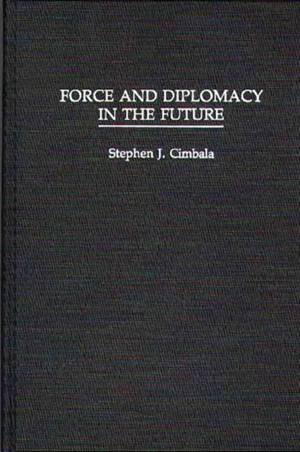
- Retrait gratuit dans votre magasin Club
- 7.000.000 titres dans notre catalogue
- Payer en toute sécurité
- Toujours un magasin près de chez vous
- Retrait gratuit dans votre magasin Club
- 7.000.0000 titres dans notre catalogue
- Payer en toute sécurité
- Toujours un magasin près de chez vous
Description
This study is an initial effort to assess the post-Cold War international environment in terms of its implications for the relationship between force and policy. This relationship between force and policy in the future, based on a retrospective look at U.S., allied NATO, and Soviet doctrine strategy is one of uncertain fidelity and potentially destabilizing content. Assuming that informed speculation about the post-Cold War world requires a sense of connection to the historical past, Cimbala sees that issues with which Europe was forced to deal prior to the Second World War will reappear in the aftermath of a socially reconstructed Soviet Union, a defunct Warsaw Pact, and a newly reunited Germany. He finds that nationalism and economic competition will contend for the attention of policymakers along with traditional security issues for the remainder of the 1990s and thereafter. The peace and stability provided for more than forty years by U.S.-Soviet strategic nuclear bipolarity and the bloc politics of the Cold War will no longer be taken for granted.
Cimbala sees that opportunities exist for collaboration between Washington and Moscow, and among other major powers, toward the development of a systems consciousness in favor of international peace and stability. Military security was not only the cause of peace in post-World War II Europe it was also the product of political stability made possible by economic prosperity. The economic prosperity of Western Europe eventually proved too embarrassing for the regimes of Eastern Europe to maintain their political legitimacy and the demise of communism in part came from the process of transformation from an industrial to a post-industrial age. This work will interest students and scholars in security and international studies, as well as policy analysts and policy makers concerned with world affairs.Spécifications
Parties prenantes
- Auteur(s) :
- Editeur:
Contenu
- Nombre de pages :
- 256
- Langue:
- Anglais
Caractéristiques
- EAN:
- 9780275941093
- Date de parution :
- 30-05-92
- Format:
- Livre relié
- Format numérique:
- Genaaid
- Dimensions :
- 164 mm x 244 mm
- Poids :
- 571 g

Les avis
Nous publions uniquement les avis qui respectent les conditions requises. Consultez nos conditions pour les avis.






